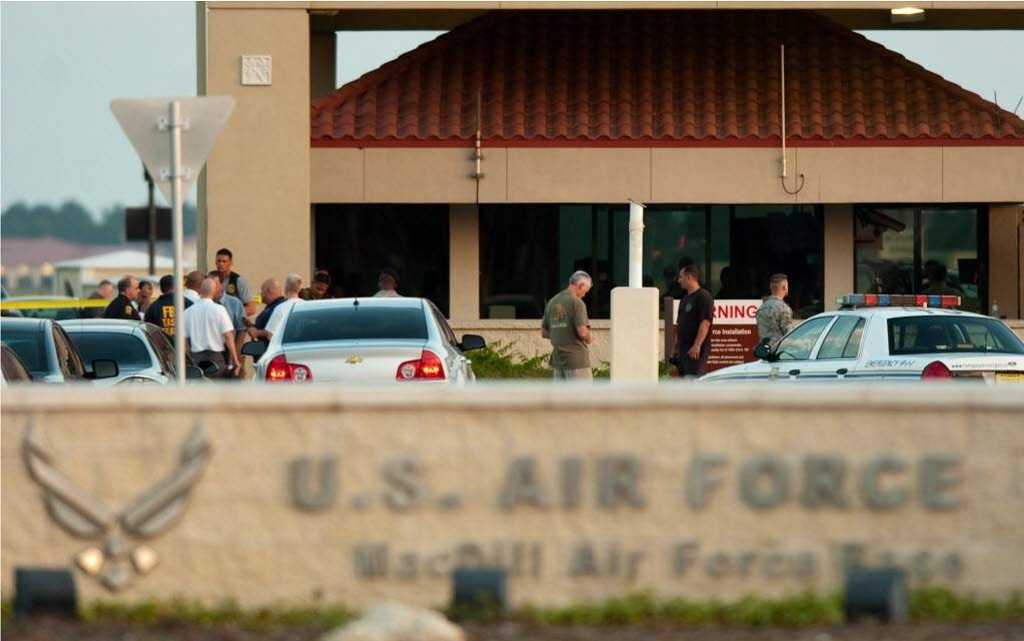The Tampa Tribune / TBO.com
Military News

TAMPA — President Barack Obama, who has relied heavily on Special Operations Forces in the battle against Islamic extremists, has given U.S. Special Operations Command a budget boost in his final spending plan, details of which were unveiled in Washington on Tuesday.
And though the budget request calls for another round of base closings in 2019, MacDill Air Force base should weather the process in the unlikely event Congress approves them, local members say.
Obama’s spending plan calls for allocating $10.8 billion to Socom, headquartered at MacDill, according to Lt. Cmdr. Matt Allen, a Socom spokesman. That represent a 3.2 percent increase from the current budget, Allen said.
That may not seem like much of bump, but weighed against the total military spending request, it’s huge. The president wants to increase the overall Pentagon budget from $580 billion to $583 billion, an increase of just .005 percent.
Officials from U.S. Central Command, also headquartered at MacDill, could not provide budget figures, referring the question to the Pentagon, which did not immediately provide an answer.
While the president’s budget request still has to wend its way through the congressional budget process, Special Operations Forces advocates say it bodes well for commandos.
Stu Bradin, a retired Army colonel who was a top advisor to former Socom commander William McRaven and who now runs the non-profit Global SOF Foundation, said the reasons for increasing Socom’s budget “are obvious.”
Special Operations Forces, he said, are “the force of choice to counter hybrid and unconventional threats. If you look at operations around the world, most of the threats to the nations are hybrid.”
Not only do jihadi groups like al-Qaida and the so-called Islamic State “pose significant threats to the U.S.,” but nations like Russia are also presenting threats that US. commandos may have to deal with.
“If you look at Russia’s recent actions, it invaded the Crimea and Eastern Ukraine with ‘Little Green Men’ — their special operators — and with surrogate forces in a deliberate campaign in what Russian doctrine calls ‘Masked Warfare,’”’ Bradin said. “Using a proportional response, U.S. SOF is now seen as a critical component to countering these threats.”
However, while Obama is seeking more total money for Socom, the command is still facing cuts in procurement, research and development, and military construction programs.
The president’s request of $1.6 billion for procurement is $97 million less than the $1.7 billion spent in the current budget, Socom’s Allen said. The procurement budget supports special operations forces programs including aviation, ship-building, ammunition, intelligence systems and vehicles.
The $497 million requested for research testing development and evaluation is $57 million less than the current budget, Allen said. The money is used to develop and integrate new technologies to sustain Socom’s decisive combat system superiority, he said.
Military construction for Socom is also going to take a cut, Allen said. The request of $470 million is $21 million less than the current budget, he said.
The president’s spending plan also calls for continued effort to cut the staffs of headquarters, like Centcom and Socom, by 25 percent.
Since the cuts were first called for by then-Defense Secretary Chuck Hagel in 2013, Centcom has cut its staff from 4,690 to 4,450, according to Air Force Capt. Bryant Davis, a Centcom spokesman.
Centcom had already planned to trim about 1,200 jobs by 2014, when the bulk of U.S. forces withdrew from Afghanistan. The cuts were planned largely through attrition.
Socom has already cut about 260 out of 1.000 jobs, Allen said.
Centcom already planned to trim about 1,200 jobs by 2014, when the bulk of U.S. forces withdrew from Afghanistan. The cuts were planned largely through attrition.
Socom has cut about 260 out of 1,000 jobs since Hagel’s order.
Another looming concern for Socom are cuts to the Army, Navy, Air Force and Marines, which provide also support for special operations forces.
Commandos are members of the individual services and have to be trained, transported, fed, supplied, protected and medically treated. Those are functions provided either largely or wholly by the services at a time when the Pentagon’s budget has been trimmed by nearly a half trillion dollars over the course of a decade.
Socom, which synchronizes the global war on terror, has seen its budget remain relatively unscathed in recent years after a long period of unprecedented growth, but there is concern by the command and groups like the Global SOF Foundation that any budget cuts to the Air Force, Army, Navy will eventually affect commandos.
U.S. Rep. Richard Nugent, R-Spring Hill, told the Tribune he will introduce language into the new budget legislation that asks the services to detail the support they provide to Special Operations Forces.
“These are dangerous times,” said Nugent, a member of the influential House Armed Services Committee. “I am truly concerned about whether we will be able to meet the demands of the future.”
Nugent said he anticipates a good deal of support for his measure, which he is hoping will be included in what is known as the “chairman’s markup” — the annual recommendations made by the committee head, now U,S. Rep. Mac Thornberry, R-Texas.
As part of its “Imperatives for 2016,” the Global SOF Foundation, which advocates for special operations forces, is calling for the services to provide an annual report of their support for special operations forces to Congress.
Nugent, who like Obama is leaving office, said he would support examining how the national defensed may benefit from another round of base closings, officially known as the Defense Base Closure and Realignment or BRAC.
“I think BRAC is going to have to come to the table to be talked about,” Nugent said.
While he sees resistance to congressional approval of another BRAC round, he doesn’t see MacDill endangered even if it is approved. He cited as primary reasons the strategic location of the base and the presence of Socom, U.S. Central Command and two Air Force refueling units. There will soon be an additional eight KC-135 aerial refueling jets added to the current fleet of 16 at the base, and MacDill is on the short list for the next round of new KC-46A tankers.
U.S. Rep. David Jolly, R-Indian Shores, believes the community should start discussing the possibility of another BRAC, which might even be good for MacDill in the long run, said his spokesman, Preston Rudie. Jolly has yet to see the President’s spending plan.
Two major military construction plans already have been approved for the base — $55 million for a new center to house 23 Army Reserve Black Hawk helicopters moving over from Clearwater and $39 million for a Socom Special Operational Support Facility.
U.S. Rep. Kathy Castor, D-Tampa, sees positives for MacDill because the president’s request calls for a total of 15 new KC-46As for a total of $3.3 billion. While those planes aren’t coming to MacDill, it means the program remains a top Air Force priority.
And the additional KC-135 planes assigned to MacDill will increase military construction on the base, according to Castor’s office. However, she remains “concerned that the Pentagon has not committed to additional base housing on MacDill for our military families,” according to her spokeswoman, Marcia Mejia.

Original URL: https://www.tbo.com/list/military-news/socom-gets-boost-in-obama-budget-but-base-closings-loom-20160210/

